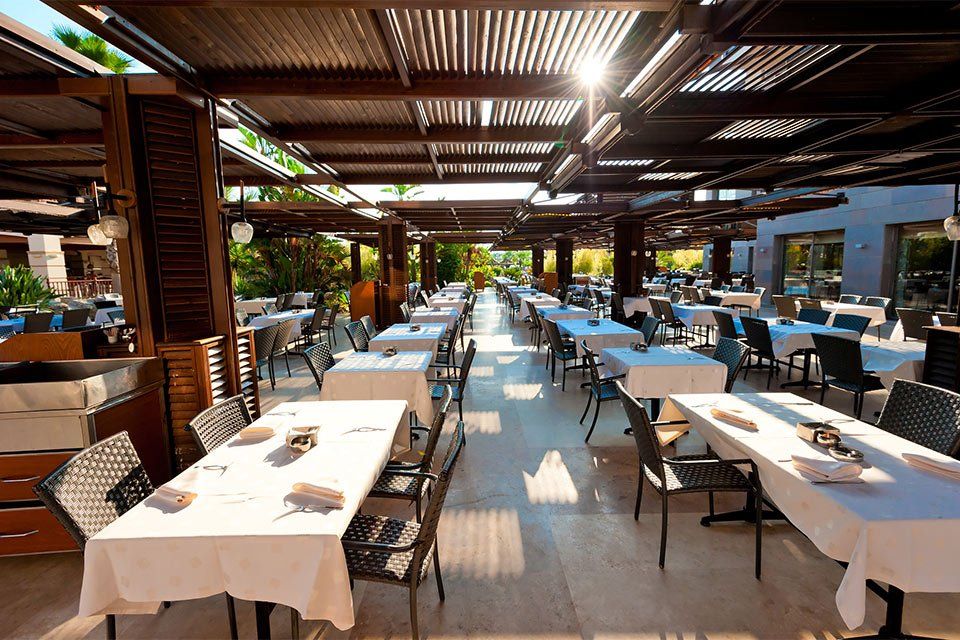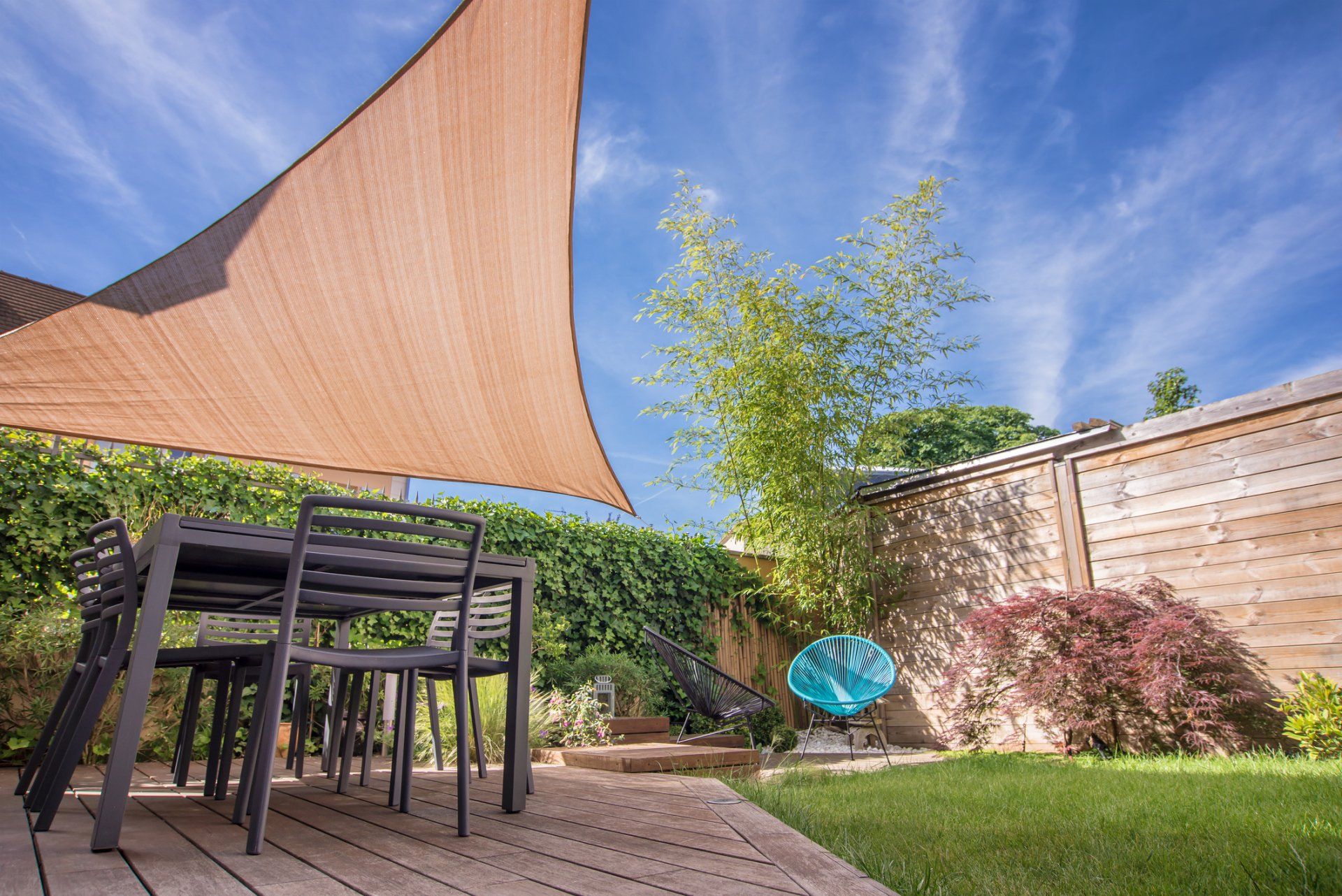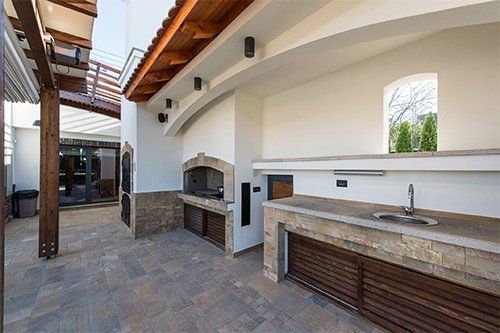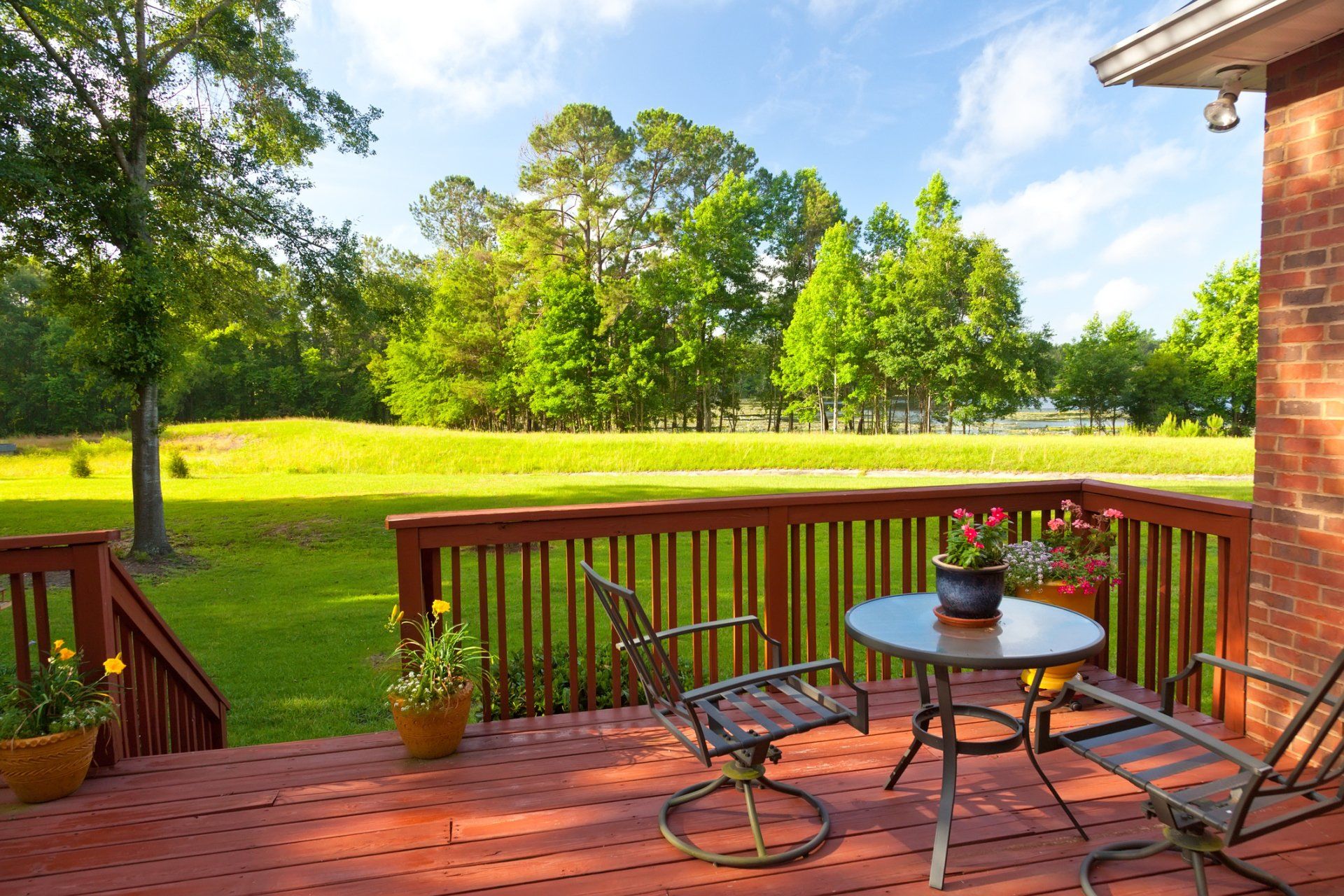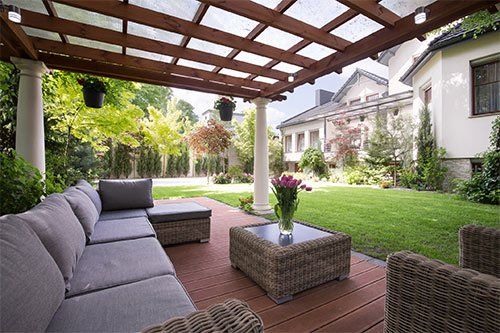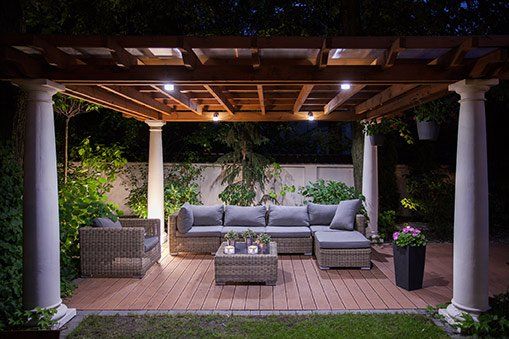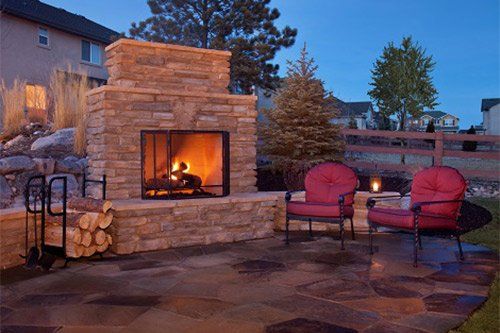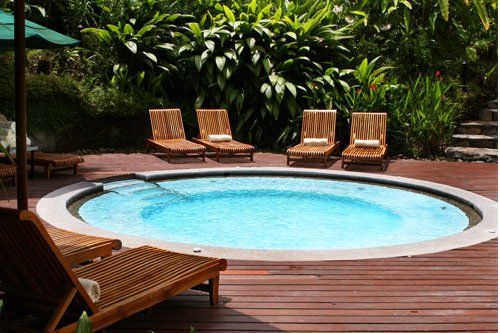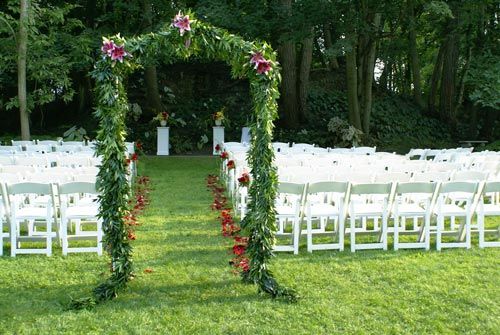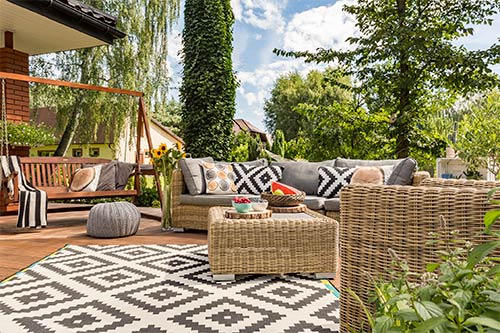
5 Reasons to Use Flagstone Rocks for an Outdoor Kitchen
- By Admin
- •
- 25 Jun, 2019
- •
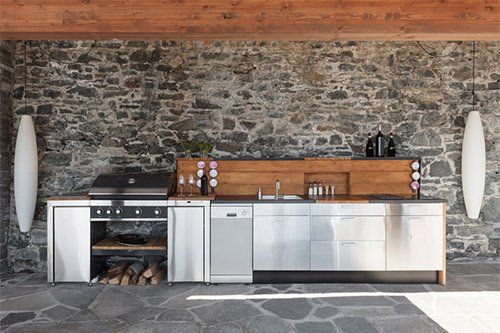
Flagstone is one of the most popular options for outdoor paving with natural stone. The material has earned this level of popularity through years of daily use from busy families without needing much maintenance or care.
If you're planning an outdoor kitchen, you definitely need a flooring material that can handle the extra challenges of this kind of exterior installation. Patios may be exposed to sun and rain, but they rarely involve risks like oil and acid spills and dropped pots. Find out why flagstone is a great choice for your new outdoor kitchen area.
1. Matching Countertops and Floor
Many materials that can handle countertop installation may work for an indoor kitchen floor but won't work well outdoors, such as marble and many granite varieties. Fortunately, flagstone is versatile enough to be used for the floor, countertops, and even fireplaces or retaining walls added to the kitchen's design.
If you don't want your countertops and floors to match perfectly in your outdoor kitchen, you can mix and match two different varieties of flagstone for a more dynamic look while still enjoying the other benefits of the stone.
2. Reducing Standing Water
Pouring concrete may sound like a quicker way to create a floor for the outdoor kitchen, but you'll find that the solid slab traps water on the surface and leads to puddles, runoff, and erosion. Standing water can create a serious safety risk when you head outdoors to clean or use the kitchen without realizing the slipperiness of the wet floor.
If you choose to set flagstone dry over a sand and gravel bed rather than over concrete, you can fill the gaps between the stones with sand and pebbles rather than mortar. The permeability of the seams allows water to drain away quickly without forcing you to choose a porous stone material that can become damaged by winter freeze and thaw cycles.
3. Enjoying High Durability
There are a few different stone varieties sold under the general name of flagstone, but most of them are highly durable even in cold environments. Freezing winters are hard on all materials used for outdoor kitchens since water that soaks into the surfaces will expand when freezing. This leads to multiple forms of damage to concrete and other stones that are less durable.
4. Resisting Acid Erosion
Natural stone materials in general may seem impervious to damage, but most of them can't handle long-term exposure to acids without becoming pitted and eroded at the surface. Flagstone can handle acids quite well, which is necessary if you want to lay the stones right on bare soil without any sand or gravel below it.
Acid resistance is also essential in the outdoor kitchen since it's always possible to spill lemon juice, vinegar, or a dish containing plenty of acidic ingredients. You'll still want to clean up spills promptly to prevent staining and stickiness, but you won't have to worry about an immediate etching effect from the acids alone.
5. Walking Safely With a Nonslip Surface
Flagstone pieces tend to have minimal smoothing and polishing to their surfaces, resulting in a naturally rough surface that has plenty of traction even when wet. Outdoor kitchens should be safe places for the entire family to enjoy, but using a flooring material that is too slippery increases the chances of a fall dramatically, especially after a summer rainstorm.
Here at Superior Outdoor Designs, we have the expertise to help you design the outdoor kitchen of your dreams. Whether you've fallen in love with flagstone as your flooring and countertop material or still need help making the right choice, call us today to start planning out your backyard projects.

